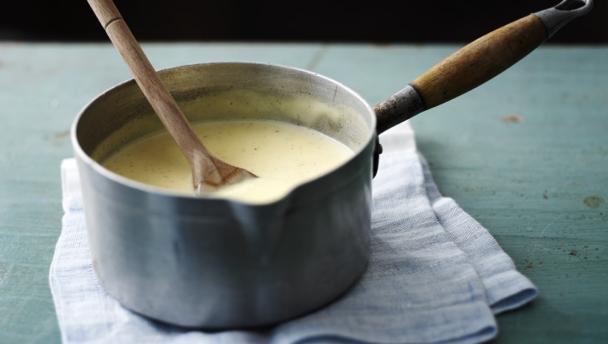

By William Leigh
The opaque, viscous orange centre of an egg, intended to feed the developing embryo. Egg yolks have a lower water content than the white that surrounds them, but contain higher levels of protein and significantly more fat. They have a much richer flavour, and are used to thicken sauces such as mayonnaise and custard. Contrary to popular myth, the colour of an egg yolk has no bearing on its quality – it simply reflects the breed of the hen, its diet and the time of year at which it was laid.
 Simple cod gratin with béarnaise sauce topping
Simple cod gratin with béarnaise sauce topping
 Buckwheat blinis with scrambled eggs and smoked salmon
Buckwheat blinis with scrambled eggs and smoked salmon
 Cheese straws
Cheese straws
 Queen of puddings
Queen of puddings
 Bramley apple slice
Bramley apple slice
 Cookies and cream fudge brownies
Cookies and cream fudge brownies
 Custard tart
Custard tart
 Bakewell tart
Bakewell tart
 Béarnaise sauce
Béarnaise sauce
 How to make mayonnaise
How to make mayonnaise
 Lemon curd
Lemon curd
Separated egg yolks can be kept in an airtight container in the fridge for a couple of days. If you wish to freeze them separately, mix them with either sugar (for use in sweet dishes: one tablespoon sugar per 568ml/20fl oz yolks) or salt (one teaspoon per 568ml/20fl oz yolks) or they will be thick and difficult to handle once defrosted.
Although egg yolks are high in cholesterol, there is no evidence that this leads to heart disease.
Article by Felicity Cloake
Type the ingredients you want to use, then click Go. For better results you can use quotation marks around phrases (e.g. "chicken breast"). Alternatively you can search by chef, programme, cuisine, diet, or dish (e.g. Lasagne).